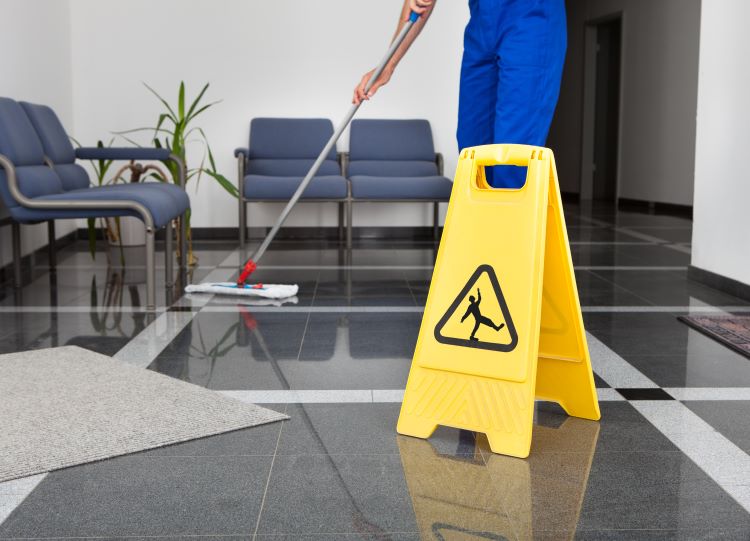The cleaning sector: exploring the different opportunities
The cleaning sector offers a diversity of positions and professional contexts, from residential to commercial environments. Understanding the requirements, sought-after skills, and local trends can help you better prepare and identify the options best suited to your profile and lifestyle.

The cleaning industry represents a significant employment sector worldwide, offering numerous job opportunities across various environments. Whether you’re looking for entry-level work, a flexible schedule, or specialized career advancement, cleaning jobs provide multiple pathways to employment. Understanding the breadth of positions available, necessary qualifications, and workplace conditions can help you make informed decisions about pursuing opportunities in this essential service industry.
What types of cleaning jobs exist?
The cleaning sector encompasses a wide variety of specialized roles across different environments. Residential cleaning focuses on private homes, where cleaners may work independently or as part of housekeeping teams. Commercial cleaning involves maintaining office buildings, retail spaces, and other business premises, often during evening hours when facilities are closed. Industrial cleaning requires specialized knowledge for manufacturing plants, warehouses, and factories, frequently involving heavy-duty equipment and chemicals.
Janitorial services represent another significant segment, with responsibilities for general maintenance and cleaning of public buildings. Specialized cleaning niches include healthcare facility sanitization, which demands strict adherence to infection control protocols; hospitality cleaning for hotels and resorts; and disaster cleanup services for restoration after fires, floods, or other emergencies. Window cleaning, carpet cleaning, and pressure washing constitute additional specialized fields requiring specific techniques and equipment.
How to prepare for a cleaning job?
While many cleaning positions don’t require formal education beyond a high school diploma or equivalent, preparation remains important for success in the field. Physical fitness is essential, as most cleaning work involves standing, bending, lifting, and continuous movement throughout shifts. Building stamina gradually can help prevent injury and fatigue. Familiarizing yourself with common cleaning chemicals, their appropriate uses, and safety protocols provides a valuable foundation.
For specialized positions, consider obtaining certifications that demonstrate professional knowledge. Organizations like the International Sanitary Supply Association (ISSA) offer training programs for various cleaning specialties. Learning proper techniques for different surfaces and environments helps prevent damage while ensuring effective cleaning. Additionally, developing time management skills enables efficient work completion within designated timeframes, a crucial factor in both residential and commercial settings where clients expect consistent results within specific schedules.
What are the positive and negative aspects of the sector?
The cleaning industry offers several advantages for workers. Job stability ranks high among these benefits, as cleaning services remain in constant demand regardless of economic conditions. Flexible scheduling options accommodate various lifestyle needs, with part-time, full-time, and shift-based opportunities widely available. Entry barriers are typically low, making these positions accessible to those without extensive formal education or previous experience. For entrepreneurial individuals, the cleaning sector presents opportunities to establish independent businesses with relatively modest startup costs.
However, challenges exist within the profession. Physical demands can lead to fatigue and potential repetitive strain injuries without proper techniques and self-care. Some cleaning environments expose workers to harsh chemicals that may cause respiratory issues or skin irritation without appropriate protective equipment. The work often occurs during non-standard hours, particularly in commercial settings where cleaning must take place after business operations conclude. Additionally, cleaning professionals sometimes face social stigma or lack of recognition despite providing essential services that maintain public health standards.
Cleaning recruitment and career advancement
Finding employment in the cleaning sector typically follows several pathways. Many companies advertise positions through job boards, company websites, and social media platforms. Cleaning service agencies often maintain ongoing recruitment efforts to build their workforce. Networking within the industry can reveal unadvertised opportunities, particularly for specialized positions. Some job seekers find success through temporary staffing agencies that place workers in cleaning roles, which sometimes lead to permanent positions.
Career advancement possibilities exist beyond entry-level positions. Experienced cleaners may progress to team leader or supervisor roles, overseeing other cleaning staff and ensuring quality standards. Specialization in areas like healthcare cleaning or hazardous materials handling can lead to higher-paying positions requiring advanced certifications. Some professionals transition into management roles within larger cleaning companies, handling client relationships, scheduling, and business operations. Others leverage their experience to establish independent cleaning businesses, creating entrepreneurial opportunities.
Compensation and working conditions in cleaning jobs
Compensation structures in the cleaning industry vary based on factors including location, specialization, experience level, and employer type. Entry-level positions typically offer hourly wages, while supervisory and management roles may provide salaried compensation with benefits packages. Specialized cleaning technicians, particularly those handling hazardous materials or operating sophisticated equipment, generally command higher pay rates than general cleaners.
| Position Type | Average Hourly Rate | Typical Work Environment | Special Requirements |
|---|---|---|---|
| Residential Cleaner | $12-18 | Private homes | Transportation often required |
| Commercial Janitor | $13-20 | Office buildings, retail | Evening/night shifts common |
| Hospital Environmental Services | $14-22 | Healthcare facilities | Biohazard training needed |
| Industrial Cleaner | $16-25 | Factories, plants | Safety certification often required |
| Specialized Technician (e.g., Carpet) | $18-30 | Various locations | Equipment certification |
Prices, rates, or cost estimates mentioned in this article are based on the latest available information but may change over time. Independent research is advised before making financial decisions.
Working conditions vary significantly across cleaning environments. Residential cleaners typically work during daytime hours but may need to provide their own transportation between client locations. Commercial cleaners often work evening or overnight shifts when buildings are unoccupied. Industrial cleaning might involve shift work in potentially hazardous environments requiring protective equipment. The physical demands remain consistent across most cleaning positions, with repetitive movements, standing for extended periods, and lifting as common requirements.
The cleaning sector offers diverse opportunities for individuals seeking stable employment with various scheduling options and potential career advancement. While challenges exist regarding physical demands and working conditions, the essential nature of cleaning services ensures ongoing demand for qualified professionals across residential, commercial, and specialized environments. With proper preparation and an understanding of the field’s requirements, cleaning jobs can provide sustainable employment and potential pathways to supervisory or entrepreneurial roles.




